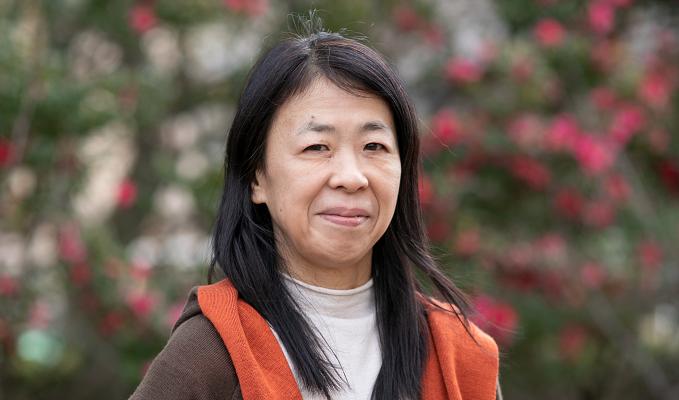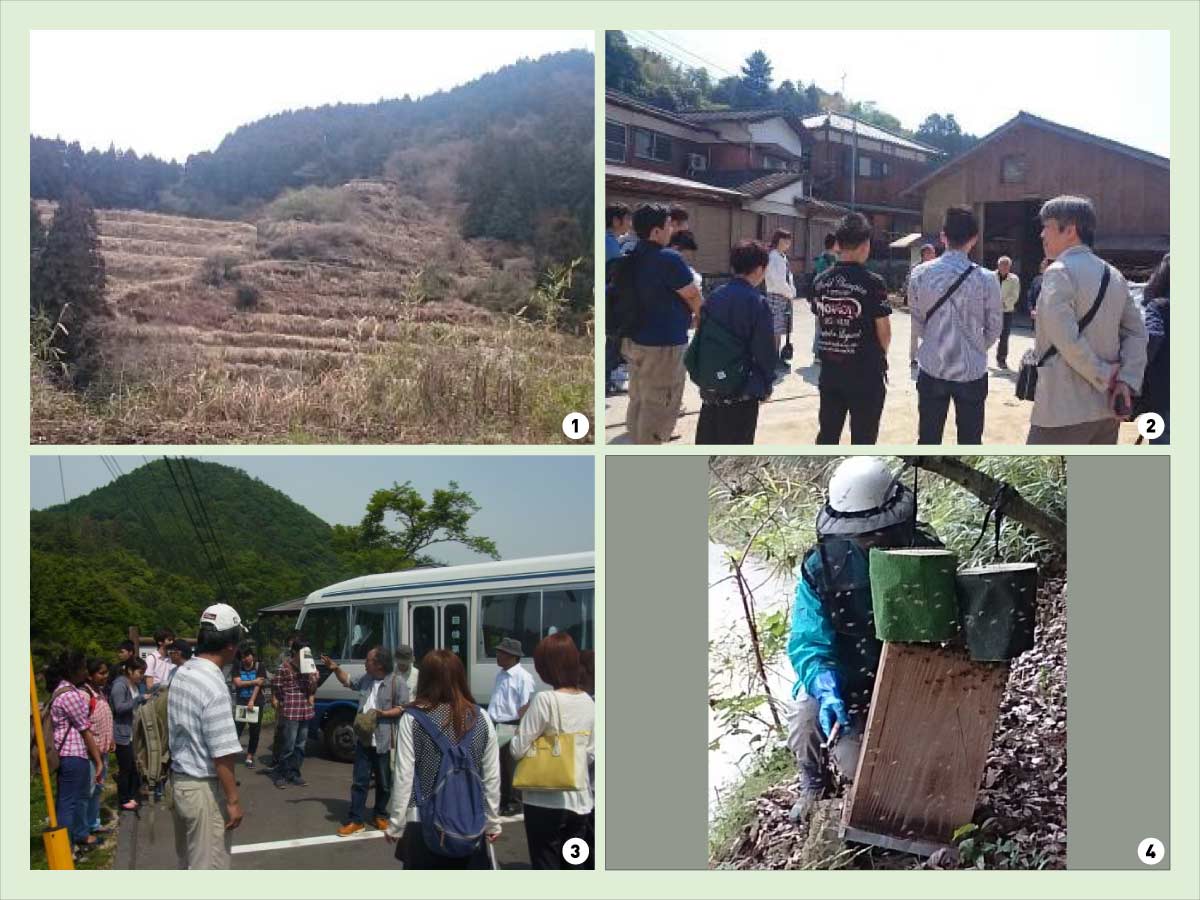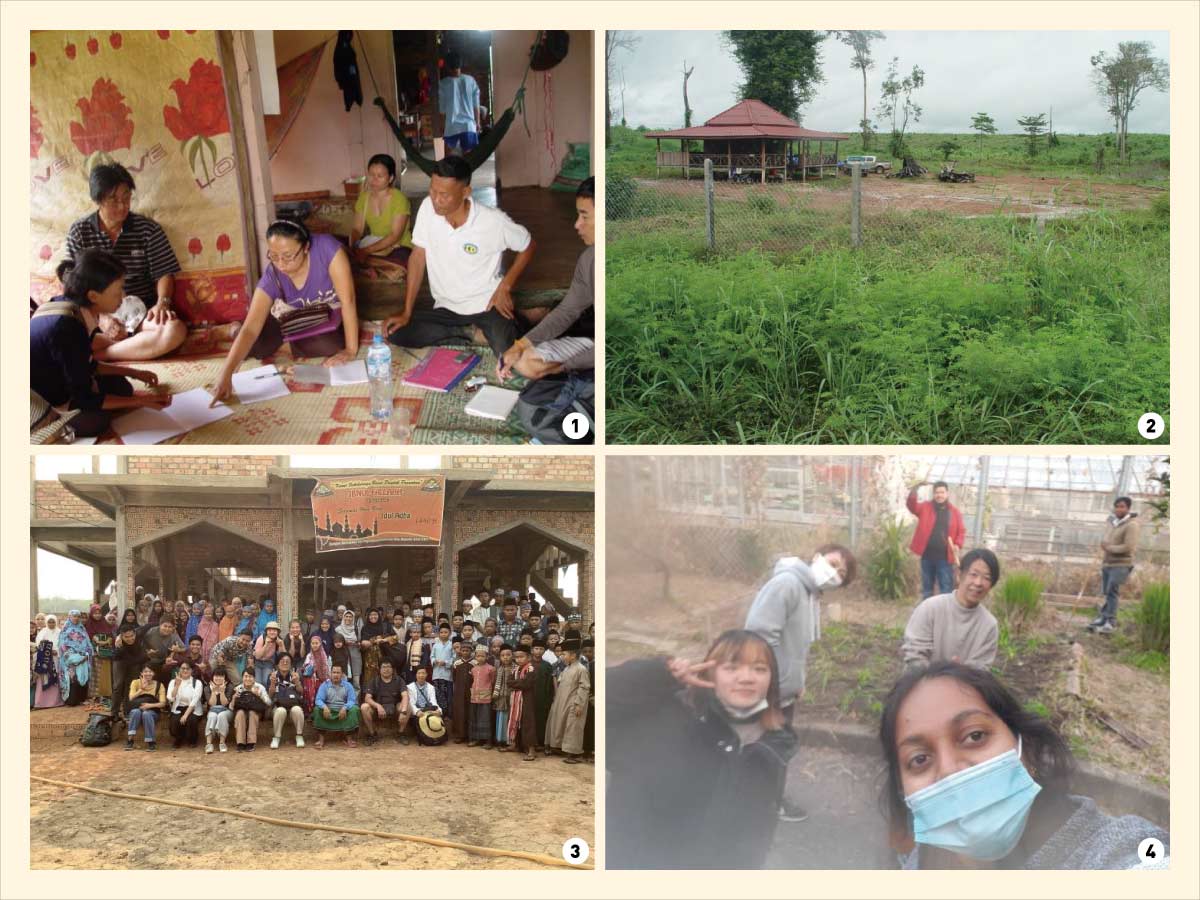Thinking about the maintenance and management of nature in rural communities from the perspective of systems of daily life

Research Fields
Rural sociology, environmental sociology, folklore studies, resource management
Keywords
Agricultural natural environments, animal damage, commons, minor subsistence, domestication of plants and animals
Research overview
Venturing into rural communities to learn about life there and thinking about the maintenance and management of nature. How should the natural environment of rural areas be managed?
Specializing in rural sociology and environmental sociology, I conduct research on three main topics regarding the maintenance and management of nature in rural communities.
1. Thinking about environmental issues from the frontlines of rural life
The first issue is changes in the way we relate to the agricultural natural environment and the people who work in it. Many rural communities are facing numerous problems such as changes in land use and declining management capacity resulting from changing lifestyles, depopulation, and demographic aging. These also vary depending on the history and circumstances of the region. As such, we continue our fieldwork by placing value on getting up close to the rural communities themselves and using direct observation and interviewing as our main methods of research. Depending on the site, we may stay involved for as long as more than 15 or 20 years, eating the local food, learning about farm work from the locals, listening to local people, and trying to better understand the history and activities of the local community in greater depth. I believe that this type of fieldwork is a very important way for young students, both in Japan and abroad, to learn.
2. Considering the problem of animal damage
The second issue is animal damage, which has become increasingly serious in recent years. In rural communities, the natural abilities of plants and animals were, and still are, used to control other plants and animals, but we are focusing on the fact that there is a substantial difference in the damage caused by pests between areas where hunting with hunting dogs is still practiced and areas where it is not. I would like to reevaluate the relationship between human society and animals from the perspective of what aspects of traditional activities can be applied to the present, and link this to measures to deal with wild animals such as boars.
With regard to the first and second topics, I believe that the multi-layered use of nature, which has likely been practiced for a very long time, and semi-domestication, which is the use and management of nature by local communities as a unit, are major keys in thinking about the problems.
3. Mountain and water-related issues in Japan and Asia
The third topic is an attempt to understand various problems involving mountains and water in Japan and Asia from a social perspective.
Japan and Southeast Asia face very different conditions. For example, while abandonment of cultivation is a problem in Japan, rapid changes in the environment due to the development of agricultural land is a problem in many other Asian countries. In order to draw on our experiences to solve these problems together, we are currently expanding our exchanges with rural communities in Laos and Vietnam, and are in the process of starting research with our collaborators in Indonesia and Sri Lanka.
I also feel the need to engage in dialogue with fields other than sociology, and am currently working to develop more in-depth discussions with fields such as agricultural science, ecological anthropology, and agricultural economics.
Message
I believe that with regard to the commons, there is always a way to find a solution in the history of the people who have lived in the local area and in their current endeavors.
*Commons: Land and resources that are used and managed as “everyone’s property.”
Main publications
- M.Fujimura, 1999, Nature and social relations: The form of property of Japanese Mura, Asian Geographer, 18: 75-85.
- Fujimura, Miho, 2016, “Can modern society restore its relationship with mountains?” Annual Bulletin of Rural Studies 52, 221-242.
- J. M. P. N. Anuradha, M. Fujimura, T. Inaoka, N. Sakai, 2018, Collective labor-intensive farming toward sustainable farm livelihoods, Journal of Environmental Sociology, 24: 121-136.
- Fujimura, Miho, 2019, “How Have Japan's Grasslands Been Maintained?” Shigekazu Adachi and Kiyoshi Kanebishi (eds.), Approaches to Environmental Sociology: 12 Perspectives for Protecting Livelihoods, Minerva Shobo, 97–118.
- Fujimura, Miho, 2021, “The Effectiveness of Bargaining: A Case Study of Hunting Dogs in Kyushu,” in Shuhei Uda (ed.), The Logic of Wildness and Humanity: Four Thoughts on Post-Domestication, University of Tokyo Press, 131–146.






